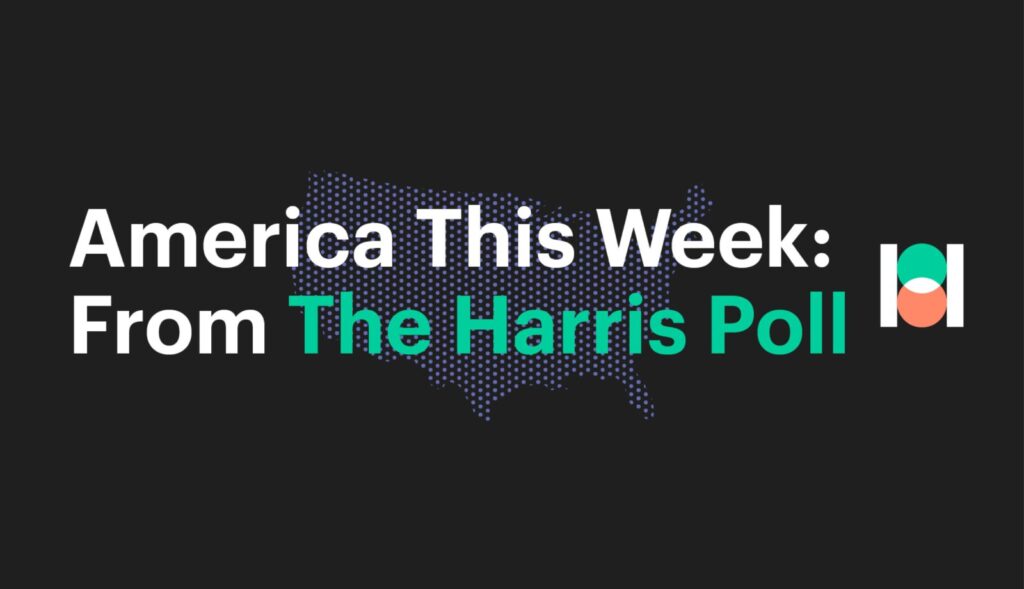Brief • 5 min Read

Increasing attention has been spent on the potential adverse effects of smartphones and social media on adolescents—both in the United States and abroad. As age restrictions, warning labels, and other measures are considered by various national, state, and local entities, the Harris Poll surveyed a representative sample of American adults about their relationships with smartphones and social media and asked them to assess the impact both have had on various aspects of their health over the last 10 years. Below are some key insights from the poll.
There is widespread concern for the potential impact smartphones and social media may be having on young people.
More than 4 in 5 (84%) American adults worry about the effect of social media on the mental health of today’s young people. Nearly 9 in 10 (88%) parents think young people are too dependent on technology, while two-thirds (68%) believe that smartphones should not be allowed in school. Nearly two-thirds (64%) of all Americans think smartphones shouldn’t be allowed in schools, including 62% of Millennials and 43% of adult Gen Z (ages 18-27). Even three-quarters (76%) of adult Gen Zers claim their generation is too dependent on technology, with 62% wishing they spent less time using technology and 56% worrying about getting addicted to their smartphones.
On the note of social media, more than 3 in 4 (77%) adult Gen Zers worry about the effect social media has on the mental health of today’s young people, with 85% of Millennials, 82% of Gen Xers, and 91% of Boomers thinking the same. Roughly 2 in 3 (65%) Americans wish they could go back to a time before everyone was “plugged in,” including majorities of each generation: 59% of Gen Z, 71% of Millennials, 67% of Gen X, and 63% of Boomers.
And a majority of Americans (57%) do not think concerns about technology harming mental health are overblown. The younger adult cohort—defined here as U.S. adults under 30 years old—over-index on seeing concerns about technology negatively impacting mental health as overblown (52% vs. 41% of U.S. adults over 30).
That said, some nuanced feelings about current technology (e.g., smartphones, social media, video games) have emerged when younger Americans assess the impact of such tech on their own lives.
U.S. adults under 30 over-index on associating the following words with technology (e.g., smartphones, social media, video games):
- Creativity (55% vs. 34% of U.S. adults over 30)
- Community (43% vs. 29% of U.S. adults over 30)
- Boredom (31% vs. 22% of U.S. adults over 30)
- Drama (25% vs. 16% of U.S. adults over 30)
- Missing out (16% vs. 8% of U.S. adults over 30)
The two most frequently cited words associated with technology by U.S. adults are entertainment (68%), connection (55%), and accessibility. The least frequently cited words are missing out (9%), depression (12%), and loneliness (15%) Women under 30 over-index on associating the following words with technology: “Entertainment” (78% vs. 60% of men under 30) and “Boredom” (42% vs. 22% of men under 30).
A third (34%) of U.S. adults under 30 say social media has had a negative impact on their mental health in the past ten years. Two in five (39%) say social media has had a positive impact. Other technologies surveyed had larger positive-negative splits:
- Smartphones: 49% positive impact, 24% negative impact
- Online video games: 49% positive impact, 17% negative impact
- Online communities: 44% positive impact, 15% negative impact
On the note of mental health, Americans identify other sources of strain.
Three in five (59%) of U.S. adults under 30 say the COVID-19 pandemic in general has had a negative impact on their mental health. One in five (21%) say it had a positive impact. Other pandemic-related factors:
- Lockdowns related to COVID-19 pandemic: 21% positive impact, 54% negative impact
- Closures related to COVID-19 pandemic: 18% positive impact, 51% negative impact
- Lifestyle changes related to COVID-19 pandemic: 24% positive impact, 48% negative impact
Two in five (40%) U.S. adults under 30 say their personal finances have had a negative impact on their mental health over the past ten years, and over half (54%) say the U.S. economy has had a negative impact on their mental health over the past ten years. Of U.S. adults under 30 who have had a factor negatively affect their mental health in the past 10 years, three in ten (29%) say the U.S. economy continues to negatively affect their mental health. A quarter (23%) say their personal finances continue to negatively affect their mental health. Similar numbers say social media (22%) and the COVID-19 pandemic in general continue to negatively affect their mental health. Only 6% say smartphones continue to negatively affect their mental health.
Of U.S. adults under 30 who have had a factor positively affect their mental health in the past 10 years, a third (36%) say online video games continue to positively affect their mental health. Similar numbers say smartphones (32%) and social media (27%) continue to positively affect their mental health.
It appears young adults have a complicated relationship with current technology. Most agree that mental health is too complex to trace struggles back to a single factor.
Over half of U.S. adults under 30 (53% vs. 29% of those over 30) are worried about getting addicted to their smartphone. Three quarters of U.S. adults under 30 (76%; and 90% of those over 30) think young people today are too dependent on technology. Two thirds of U.S. adults under 30 (65%; and 75% of those over 30) agree that mental health is too complex to link struggles to one specific factor.
This survey was conducted online in the United States by The Harris Poll from May 03, 2024 to May 06, 2024 among 1,088 U.S. adults ages 18+. Figures were weighted where necessary to bring them into line with their actual proportions within the US population. Respondents for this survey were selected from a pool of potential respondents who have agreed to participate in The Harris Poll’s online research.
Subscribe for more Insights
Subscribe to our newsletter for the latest trends in business, politics, culture, and more.
Related Content









